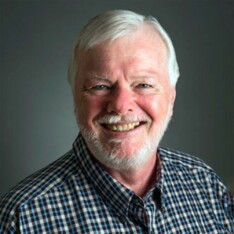
A decade in the past, in his Second Inaugural Handle, Barack Obama made the declare that “preserving our freedoms finally requires collective motion.” And his many proposals, assertions and “victories” as President, reminiscent of Obamacare and Dodd-Frank, demonstrated that, in his view, liberty required large “progressive” authorities.
President Obama’s understudy, now within the White Home, has, alongside together with his enablers, doubled or tripled-down on that view. It’s maybe finest illustrated by his need to interchange Individuals’ energy to make their very own choices concerning the consolation of their very own properties. As Beege Welborn, put it, “Is there any consolation in your solidly center class life that they won’t attempt to deprive you of, or, if unsuccessful, a minimum of regulate into non performance and obsolescence-by-design?” He then cites “Fuel stoves, the very energy in your house, your automobile, air-conditioner, washer and dishwasher,” adopted up with new proposals to manage ceiling followers, which he creatively described as “These blameworthy blades of bounty and egocentric indulgence.”
The shared method of each Obama and Biden, nevertheless, is sharply at odds with the imaginative and prescient behind America’s Founding. Since that Founding was strongly influenced by English thinker John Locke, whose birthday is August 29, it’s value revisiting his imaginative and prescient of liberty to spotlight the large political “continental drift” concerned.
Locke’s affect on our Founding might finest be seen in in the truth that some have argued that the Declaration of Independence wouldn’t have been written with out him. Additional, it has been stated that in writing the Declaration of Independence, “Jefferson…succeeded admirably in condensing Locke’s elementary argument into a number of hundred phrases.” The query of whether or not Thomas Jefferson primarily plagiarized its core second paragraph from Locke’s 1689 Second Treatise on Authorities has additionally arisen.
Locke’s views are in sharp distinction with our current political follow of rising authorities from one in every of very restricted powers towards one in every of omnipresence, if not omnipotence. As Locke put it, and America’s Founders echoed, “Political energy…can don’t have any different finish…however to protect the members of that society of their lives, liberties, and possessions.”
If we had been to reword President Obama’s line concerning the crucial ambit of collective motion into one thing per the Founders’ view, we would say that “preserving our freedoms finally requires one sort of collective motion, however guidelines out many others,” reflecting Locke’s dictum that “the top of regulation…is to protect and enlarge freedom…from restraint and violence by others.”
Locke advocated a state that existed to advance the welfare of all of its residents (probably the most pure interpretation of the Normal Welfare clause within the Preamble to the Structure). As a result of “all males are naturally in…a state of good freedom to order their actions, and eliminate their possessions and individuals, as they see match…with out…relying upon the desire of some other man,” his aim was a society all would willingly be a part of. Since becoming a member of can be voluntary, nobody may very well be harmed by the state to profit others.
What might a authorities restricted to solely advancing residents’ basic welfare do? Not a lot. It could actually not be omnipresent. It might do one important factor, derived from people’ “pure proper” to themselves and their productive efforts: defend property, as David Hume additionally acknowledged way back.
Self-ownership is proscribed in effectiveness as a result of a person attempting to guard his rights towards violation may very well be comparatively simply overwhelmed by superior pressure. Due to this fact, “the preservation of property being the top of presidency, and that for which males enter society,” becoming a member of collectively to mutually defend everybody’s property would make all safer, increasing the vary of consequent voluntary preparations which immensely profit everybody.
Locke’s view, mirrored in our Founding paperwork, is that preserving our freedoms requires one sort of collective motion: the preservation of our rights. No extra. Actions past that profit some on the expense of others. In Locke’s phrases, “The supreme energy can’t take from any man any a part of his property with out his personal consent,” and at any time when that restrict is violated, “by this breach of belief they forfeit the facility the folks had put into their arms for fairly opposite ends.”
Locke’s view displays the truth that a authorities that has nothing of its personal to present, however can solely give what it takes from others, means it can’t “give” to some with out involuntarily violating the final welfare of others. Each Presidents Obama and Biden have as an alternative seen such violations as a routine a part of governing, and made it way more routine within the course of. Such a switch society inherently violates authorities’s important job of defending the property of these it takes from, invading the “elementary, sacred, and unalterable regulation of self-preservation, for which they entered society.”
When the President of america views his core duties as taking from some to present to others by mandates, rules, “taxing the wealthy,” increasing entitlements, and the like, it’s strikingly at odds with America’s Lockean basis. That model of “preserving our freedoms” violates the one sort of collective motion that’s justifiable—defending every of us from the depredations and invasions of others—and replaces it with an enormous array of collective actions that should be prevented somewhat than applied if we’re to take pleasure in liberty.
What would Locke say about this? “Rulers must be…opposed, after they develop exorbitant in the usage of their energy, and make use of it for the destruction, and never for the preservation of the properties of the folks.” And America’s Founders had been of the identical thoughts. As Richard Henry Lee wrote, “A free and enlightened folks…is not going to resign all their rights to those that govern… they may repair limits to their legislators and rulers…[who] will know they can’t be handed.” George Washington urged us to “Categorical your utmost horror and detestation of the person who needs, beneath any specious pretenses, to overturn the liberties of our nation.” John Adams wrote, “Property should be secured, or liberty can’t exist.” And that checklist goes on at size. Sadly, although, the collective actions essential to safe our rights towards others, particularly towards the federal government, which has the best powers to violate them, have been largely overrun by those that are actually largely in management, somewhat than managed.


